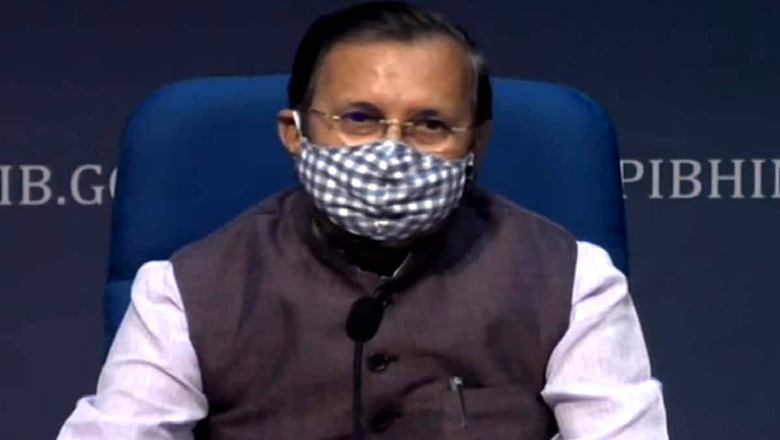
views
Delhi and the neighbouring states of Haryana, Punjab, UP and Rajasthan, which get covered by thick pollution due to stubble burning every year, will this year use a new technology developed by Pusa Agriculture Institute to decompose straw in the fields, Union Environment Minister Prakash Javadekar said on Thursday.
He was addressing the media after holding a virtual meeting with environment ministers of Delhi and the four neighbouring states to check their preparedness and take preventive measures ahead of the crop residue burning in the winter season.
Javadekar said though stubble burning has reduced in the last three years, more needs to be done to tackle the issue. He said that the trial of Pusa Microbial Decomposer Capsule is underway in Delhi-NCR and informed that Uttar Pradesh (UP) will be using this technology over an area of 10,000 hectares this year, while Delhi will be using it for 800 hectares as informed by the environment ministers of these states.
He said during the meeting, which was also attended by Central Pollution Control Board (CPCB), state pollution control boards, Delhi Development Authority (DDA) and New Delhi Municipal Council (NDMC), that the Centre has allotted a fund of Rs 1,700 crore to the states for stubble management. "Currently, 80 per cent subsidy to cooperatives and 50 per cent subsidy to individuals on machineries for stubble is being provided to curb pollution caused due to stubble burning.
"Six meetings have already been held this year to discuss the issue of stubble burning and the central government has taken several measures for the same," he said. After chairing the over an hour-and-a-half-long meeting with the states, Javadekar said that all the five states gave details of their action plans and Delhi has been asked to focus on its 13 pollution hotspots and any incomplete road work must be completed to avoid dust.
"Today, states shared their plans to fight against pollution and we have suggested more steps to deal with it further," the minister said. The minister said that several measures have been taken by the Centre like BS VI norms have been introduced, and power plants of Badarpur have Sonipat have been closed.
He said that Eastern and Western Peripheral Expressways have helped massively in reducing vehicular air pollution in Delhi and nearly 60,000 vehicles are diverted from Delhi which earlier used to go through the national capital. "Hotspots have been prepared. The central government has given machines to destroy crop residue. ICAR and Pusa's decomposer technology will be tried in states this year on trial basis.
"We are also encouraging the use of Bio CNG and bio-power. BS-VI compliant vehicles have been introduced. Measures have been taken but more needs to be done," he said. The IARI has developed PUSA Decomposer, which is a set of four tablets made by extracting fungi strains that help the paddy straw to decompose at a much faster rate than usual, giving farmers the option to shred the straw, spray a solution containing the fungal strains, and mix it with the soil for decomposition.
Javadekar also said that awareness was being spread among states where there was more stubble burning. "States were told that in COVID-19 days, as lungs are already affected by pollution, it can pose more danger for everyone. Where there is more stubble burning, like Punjab, awareness among farmers is being spread," he said.
He appealed to the state governments as well as the masses to also take constructive measures to contribute in reducing air pollution and added that the CPCB will work actively with all states on a daily basis to monitor the level of pollution. According to ministry sources, between September 15 and 21, construction and demolition activities caused maximum pollution in Uttar Pradesh at 59 per cent, while maximum garbage burning was found in Haryana at 37 per cent.
Punjab, Haryana and Uttar Pradesh attract attention during the paddy harvesting season between October 15 and November 15. Farmers set their fields on fire to quickly clear off the crop residue left behind after harvesting and before cultivating wheat and potato. It is one of the main reasons for the alarming spike in pollution in Delhi-NCR.

















Comments
0 comment